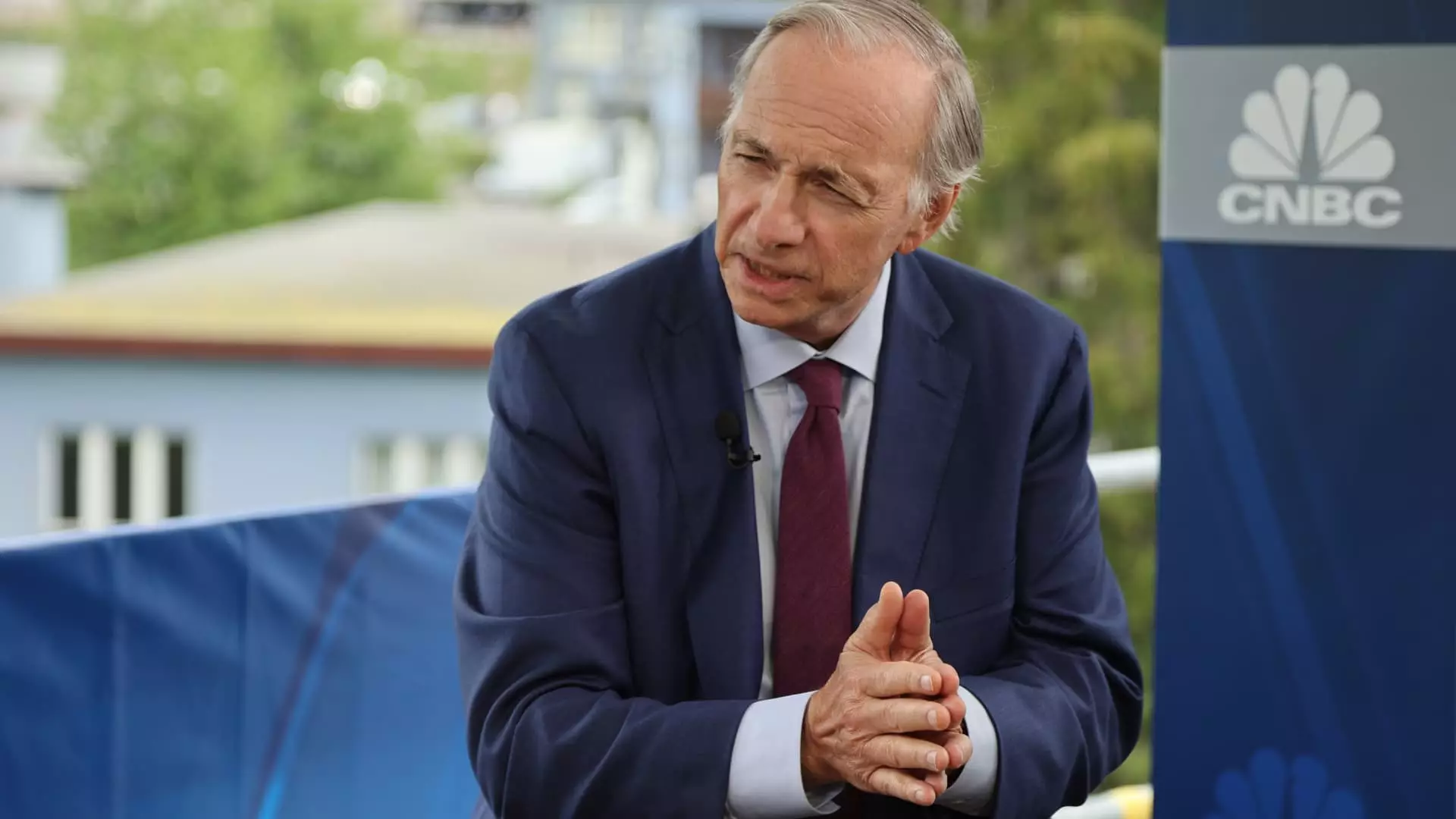Ray Dalio, a renowned investor and founder of Bridgewater Associates, recently articulated his views on the forthcoming 2024 U.S. elections, deeming them potentially the most consequential in his lifetime. His assertion reflects an alarming polarization seen across American society, where fundamental differences between political parties seem not only pronounced but also unacceptable. In a world increasingly characterized by dichotomy, the need for a unifying figure—a “strong leader of the middle”—has never been more critical.
Dalio emphasized the urgency of societal cohesion by pointing to the growing chasm between Republicans and Democrats. Major issues like abortion rights, immigration policy, and climate change have taken center stage in this ideological battleground. However, Dalio also notes that the prevalent issues for the electorate lie more in basic economic realities, such as inflation and the rising cost of living. This disparity in focus indicates a systemic failure to address what truly matters to the populace, leading to a disconnect between government priorities and citizen needs.
The core of Dalio’s caution centers on the implications of an election cycle filled with hostility. He warns against a prevailing “win-at-all-cost mentality,” which can undermine the essential tenets of democracy, such as compromise and fruitful dialogue. The critical question at hand is whether America can ensure an orderly transition of power, reflecting the dire consequences posed by potential electoral disputes. The mere possibility of contesting election results hints at a fracturing democratic framework.
For Dalio, the way forward our nation needn’t hinge upon partisan victories, but rather on fostering environments where moderates can unite and prioritize substantial reforms. The concept of “broad-based prosperity” stands out as a pivotal solution for American society. Dalio paints a picture of a successful society as one that provides both order and opportunity for all, rather than allowing the benefits of prosperity to trickle down to only a select few. He points to Singapore as a prime example, illustrating that comprehensive approaches to education and public welfare yield positive societal outcomes.
This directive for a collective, middle-ground approach serves as a rallying cry for voters seeking an alternative to partisan extremes. As economic hardships continue to plague citizens, the need for pragmatic, solution-oriented governance becomes increasingly evident. A coalition that seeks to bridge divisions can lay the groundwork for innovative proposals that resonate with a diverse electorate.
In the face of these challenges, Dalio’s outlook is mixed; while he acknowledges the vibrancy of American innovation and education, he also highlights the limitations of these attributes, which often fail to serve the interests of the majority. The upcoming elections thus stand as a critical juncture where American democracy could either regain its footing or descend into deeper turmoil.
Ultimately, the responsibility lies with the electorate to demand leadership that emphasizes unity over division. By embracing a new, inclusive approach—one that champions broad-based prosperity—Americans can reinvigorate their commitment to democratic values, working together to confront the pressing challenges of today. The 2024 elections could very well redefine not just the political landscape but also the essence of what it means to be a united nation.


Leave a Reply